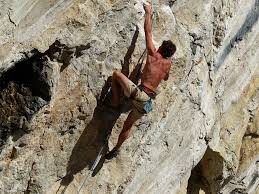Are You Training Your Muscles The Way They Were Designed To Work?

Why Couch Stretch Is For Everyone
March 10, 2020
Importance of Amino Acids In Your Body
March 21, 2020Should you train your biceps the same way you train your glutes? If not then why? As I see it we can very easily look at the muscle fibre type make up of each muscle and determine that one muscle is more of an endurance muscle than an explosive muscle or vice versa but is that as far as it goes and what does this mean practically?
You only have to look at athletes from different sports and look at their proportional development to see what style of training optimizes each body part.
Example sprinters have some of the best glute/hamstring development as do most powerlifters and olympic weightlifters. What they have in common is heavy and explosive training. I am not aware of any endurance or distance sport where athletes on the whole commonly have great glute/hamstring development. There will always be an exception to rule but this is irrelevant.
The lats and upper back are arguable designed for climbing, and funnily enough, high level climbers tend to have great back and forearm development from high volume frequent training.
Biceps are a carrying/endurance muscle and thus respond well to lots of constant tension and static holds. Triceps are a strong and they had better be if you want to be strong in pressing movements.
These are simply examples not absolute truths. The truth is the each muscle will have more than one function and optimal athletic performance will come from exploiting each muscle appropriately depending in what you are trying to achieve. If you goal is size then certainly you will want to exploit various rep ranges to maximize the utilization of as many fibres as possible. If you are an endurance or explosive athlete you will probably want to focus most of your energy developing one aspect but do not ignore the body’s design to function as a whole. If you are a distance athlete you WILL need explosive/strength work to balance your body. Likewise explosive/strength athletes will need to work higher reps on certain muscles again to keep the body in balance, which not only prevents injury but optimizes performance.
Dr. Hassan Z.





